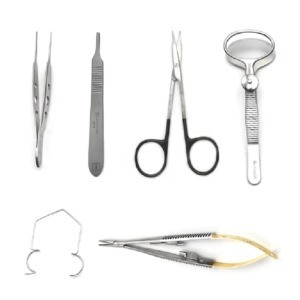
In the realm of modern medicine, cardiovascular instruments play a pivotal role in diagnosing, treating, and monitoring heart-related conditions. From delicate surgeries to routine check-ups, these instruments ensure precision, accuracy, and patient safety. Let’s delve into the world of cardiovascular instruments, understanding their types, functionalities, and evolving technologies.
Understanding Cardiovascular Instruments
Cardiovascular Instruments: An Overview
Cardiovascular instruments encompass a broad spectrum of medical devices designed for cardiac interventions, diagnostics, and therapeutic procedures. Ranging from simple stethoscopes to advanced catheters, these instruments aid in the assessment and management of heart diseases, ensuring optimal patient care.
Significance of Cardiovascular Instruments
Cardiovascular instruments hold immense significance in healthcare, facilitating early disease detection, accurate diagnosis, and effective treatment strategies. By providing clinicians with valuable insights into cardiac function and structure, these instruments contribute to enhanced patient outcomes and improved quality of life.
Types of Cardiovascular Instruments
- Diagnostic Instruments: Including electrocardiograms (ECGs), echocardiography machines, and stress testing equipment, these instruments help in assessing cardiac health and identifying abnormalities.
- Surgical Instruments: From scalpels and forceps to retractors and scissors, surgical instruments are essential for performing intricate cardiac surgeries with precision and efficiency.
- Monitoring Devices: These instruments, such as Holter monitors and blood pressure cuffs, enable continuous monitoring of heart activity and vital signs, aiding in the management of cardiovascular conditions.
- Interventional Tools: Including catheters, guidewires, and stents, interventional instruments are used in minimally invasive procedures like angioplasty and stent placement, reducing patient recovery time and post-operative complications.
Innovations in Cardiovascular Instrumentation
Technological Advancements
Recent years have witnessed remarkable advancements in cardiovascular instrumentation, driven by cutting-edge technologies like robotics, 3D printing, and artificial intelligence. These innovations have revolutionized cardiac care, offering personalized treatment approaches and improved procedural outcomes.
Miniaturization and Portability
Advances in miniaturization have led to the development of portable cardiovascular instruments, allowing for point-of-care diagnostics and remote patient monitoring. These compact devices enhance accessibility to cardiac healthcare services, particularly in underserved regions and emergency situations.
Integration of Digital Health Solutions
The integration of digital health solutions with cardiovascular instruments has enabled real-time data collection, analysis, and remote consultation. From smartphone-compatible ECG monitors to cloud-based imaging systems, these interconnected technologies promote proactive management of heart conditions and empower patients to take charge of their health.
FAQs (Frequently Asked Questions)
Q: What are the primary types of cardiovascular instruments?
A: Cardiovascular instruments encompass diagnostic, surgical, monitoring, and interventional devices, each serving distinct purposes in cardiac care.
Q: How do cardiovascular instruments contribute to patient outcomes?
A: By enabling precise diagnosis, effective treatment, and continuous monitoring, cardiovascular instruments play a critical role in improving patient outcomes, enhancing survival rates, and minimizing complications.
Q: Are cardiovascular instruments only used in hospitals?
A: While many cardiovascular instruments are utilized in hospital settings, certain portable devices allow for home-based monitoring and point-of-care diagnostics, expanding access to cardiac healthcare services.
Q: What are some recent technological advancements in cardiovascular instrumentation?
A: Recent advancements include the integration of robotics, 3D printing, and artificial intelligence, enhancing the precision, efficiency, and safety of cardiac interventions.
Q: How do interventional cardiovascular instruments differ from surgical instruments?
A: Interventional instruments are typically used in minimally invasive procedures like angioplasty and catheterization, whereas surgical instruments are employed in open-heart surgeries and other invasive interventions.
Q: Can cardiovascular instruments be used for preventive care?
A: Yes, cardiovascular instruments play a crucial role in preventive care by facilitating early disease detection, risk assessment, and lifestyle management strategies.
Conclusion
In conclusion, cardiovascular instruments are indispensable tools in modern medicine, enabling clinicians to diagnose, treat, and monitor a wide range of heart-related conditions with precision and efficiency. As technology continues to evolve, these instruments will undoubtedly play an increasingly vital role in improving cardiac care outcomes and enhancing patient well-being.
Go to “https://rigorinstruments.com/cardiovascular-surgical-instruments/“




